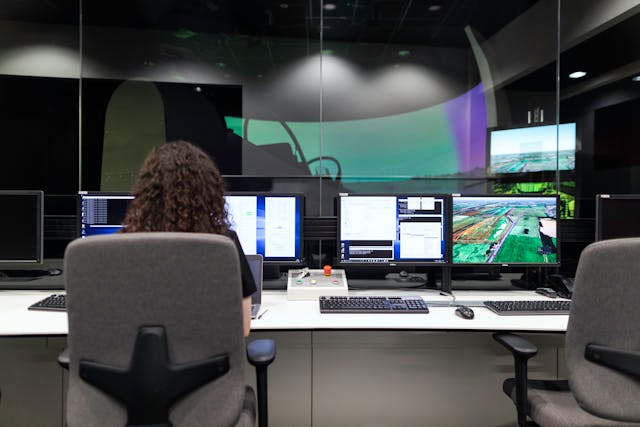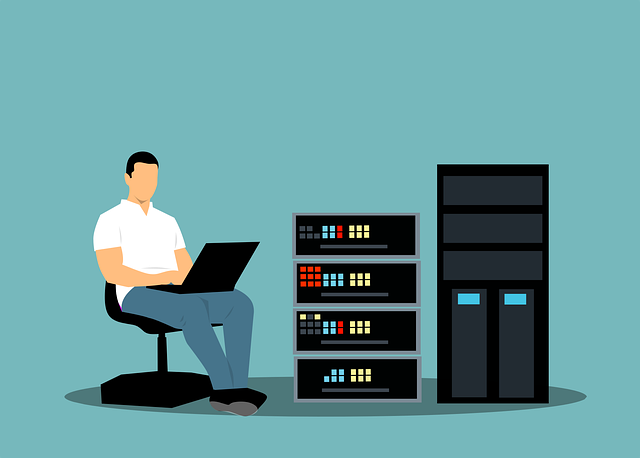Role of Data Centers in the Internet of Things (IoT) Era
In today’s fast-paced digital world, the Internet of Things (IoT) has emerged as a game-changer, transforming how we interact with technology and our surroundings.
This revolutionary concept connects everyday objects and devices to the internet, creating a vast network of interconnected systems that collect and exchange data.
In this IoT era, the importance of data centers cannot be overstated. Data centers in Noida, such as the data center Noida, play a pivotal role in enabling the seamless operation of IoT applications and services.
Table of Contents
The IoT Revolution
The Internet of Things has ushered in a new era of connectivity, where devices, sensors, and machines communicate and collaborate like never before. From smart homes and cities to industrial automation and healthcare, IoT applications span a wide spectrum of industries. This interconnected ecosystem generates an immense amount of data that needs to be collected, processed, and analyzed in real time. Here is where data centers in Noida come into play
Data Centers: The Nerve Center of IoT
Data centers in Noida, like data center Noida, serve as the backbone of the IoT ecosystem. They provide the essential infrastructure required to handle the massive influx of data generated by IoT devices. Let’s delve into the pivotal role these data centers play:
1. Scalability and Flexibility: Data centers in Noida are designed to scale according to the growing demands of IoT applications. As the number of connected devices continues to rise, these data centers ensure that resources can be allocated and reallocated efficiently, guaranteeing uninterrupted service availability.
2. Low Latency Connectivity: In IoT, low latency is critical, especially in applications like autonomous vehicles and industrial automation. Data centers in Noida are strategically located to minimize latency, enabling faster data processing and real-time decision-making.
3. Data Security and Privacy: With the vast amount of sensitive data generated by IoT devices, security and privacy are paramount. Data centers in Noida implement robust security measures to safeguard data, ensuring that it remains protected from cyber threats and unauthorized access.
4. Reliability and Redundancy: IoT applications often require high levels of uptime. Data centers in Noida are equipped with redundancy measures, including backup power systems and multiple network connections, to ensure uninterrupted operation, even in the face of unforeseen disruptions.
5. Energy Efficiency: As the IoT ecosystem grows, concerns about environmental impact arise. Data centers in Noida are committed to energy efficiency, implementing green technologies and practices to minimize their carbon footprint.
The Workflow of IoT Data
To understand how data centers in Noida support the IoT era, let’s take a closer look at the typical workflow of IoT data:
1. Data Generation: IoT devices, such as sensors and cameras, continuously collect data from their surroundings. This data includes information about temperature, humidity, location, and more.
2. Data Transmission: The collected data is transmitted to a nearby IoT gateway, which acts as an intermediary between the devices and the data center. The gateway preprocesses the data before sending it to the data center.
3. Data Processing: At the data center in Noida, the incoming data is processed in real-time. This includes data validation, aggregation, and analysis. Data center infrastructure ensures that this processing occurs swiftly and accurately.
4. Data Storage: Processed data is stored in data centers for future reference and analysis. Datacenter Noida facilities are equipped with robust storage systems to accommodate the ever-increasing volume of IoT data.
5. Data Insights: Data analytics tools and algorithms are applied to the stored data to extract valuable insights. These insights can be used to make informed decisions, optimize operations, and enhance user experiences.
6. Data Dissemination: Relevant data is disseminated to end-users, devices, or other applications. This may involve sending alerts, triggering actions, or displaying information on user interfaces.
IoT Use Cases Powered by Data Centers in Noida
The integration of IoT and data centers in Noida has led to a myriad of use cases across various industries:
1. Smart Cities: IoT sensors monitor traffic, air quality, and energy consumption, helping city planners make data-driven decisions to improve urban living conditions.
2. Healthcare: Wearable devices and remote monitoring systems transmit patient data to healthcare providers, enabling timely interventions and better patient care.
3. Manufacturing: Industrial IoT (IIoT) optimizes factory operations by providing real-time insights into equipment performance, reducing downtime, and increasing productivity.
4. Agriculture: IoT-powered precision agriculture uses data from sensors to optimize irrigation, monitor crop health, and enhance crop yields.
5. Logistics and Transportation: IoT-enabled tracking and monitoring of shipments enhance supply chain visibility and efficiency, reducing delays and losses.
6. Retail: IoT devices in stores collect data on customer behavior, helping retailers personalize marketing and improve the shopping experience.
Bottom Line
In the IoT era, data centers in Noida, including data center Noida, are the linchpin enabling the seamless operation of IoT applications and services. They provide the scalability, low latency, security, reliability, and energy efficiency required to process and manage the vast amounts of data generated by IoT devices. As IoT continues to shape our interconnected world, data centers in Noida will remain at the forefront, ensuring that the IoT revolution thrives and benefits society across countless domains.










